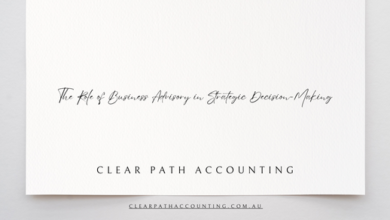
Top 5 Mistakes to Avoid During the Australia PR Process
Most dream of migrating to Australia because it provides a high standard of living, great healthcare, and good economic opportunity. Still, the process of obtaining a Permanent Residency in the country can be very complex and stressful. It becomes very important to one for careful attention to minor details, as a slight mess-up may lead to one being delayed or losing their opportunity. Listed below are the five major mistakes to avoid concerning the permanent residency Australia application, which will ensure a smooth and successful transition into permanent residency.
Inadequate or inaccurate documentation
One of the most standard and serious errors an applicant can make when applying is to apply with incomplete or inaccurate documentation. The Australian immigration authorities are very particular about the documents that must be furnished for PR applications. Any mistake in documents or missing documents—for instance, inability to provide proper proof of work experience or educational qualification—can delay or sometimes even reject the application. Check through all documents before submission to be one step ahead and see that all is per requirements and complete in all aspects. Having a clear idea of what is necessary this costly mistake will be prevented.
Misrepresenting the points system
What underpins the General Skilled Migration program is the points test. Misunderstanding how the thing works could cost you a tremendous amount. There are a bunch of requirements—age, work experience, educational qualifications, and proficiency in the English language—that award points. Many applicants overestimate their point accumulation or just ignore how other additional points can be scored. The important thing is to calculate and realistically assess your points in detail before submission. It does not augur well if an error in your calculation has you missing requisite threshold points.
Ignores English language proficiency
The Australasia PR procedure requires that a candidate should be proficient in the English language. Most applicants who take this test likely get low scores in exams such as IELTS, PTE, or TOEFL. This greatly affects your total number of points and eventually decreases your chances of succeeding. In case of need, one can always resort to formal coaching to achieve linguistic skills, the fruits of which shall avail very substantial effects in the application. Take note that your English score is considered just a formality. More on the matter, it does have a significant impact on your qualification for permanent residency.
Ignore occupation list updates
Australia’s immigration policies on the types of occupations which qualify for permanent residency status change often. To their detriment, most applicants miss this, of course, because they end up applying for occupations that have already been removed from the eligible list of occupations. It is therefore important that there be a checking on the current Skilled Occupation List or the Medium and Long-term Strategic Skills List before lodging any application. Applying under an ineligible occupation can be quite needlessly frustrating and wasteful of time and resources.
The wrong choice of visa category
There are many chances in Australia for permanent residency, like the Skilled Independent Visa (subclass 189), Skilled Nominated Visa (subclass 190), and Employer-sponsored Visas. Wrong visa type selection can lead to serious financial penalties at last. Now each type of classification has been brought under specific eligible criteria. Thus, you should choose a type that suits your skills and condition most closely. It will help you narrow down to the most appropriate choice through research in each category, consulting experts in those fields of interest, and being sure that all requirements necessary for success are met.
Final words
By avoiding these common pitfalls, the chances of getting permanent residency in Australia get multiplied several folds. Great care has to be exercised in beating Permanent Residency’s tough process regarding meticulous attention to documentation, understanding the points system, high English language proficiency, getting timely updates on the occupation list, which is always undergoing change, and finally choosing the correct visa category. On the other hand, professional advice may enhance the possibility of a positive outcome for the PR Canada process and turn your dream of living and working in Canada into a reality.




